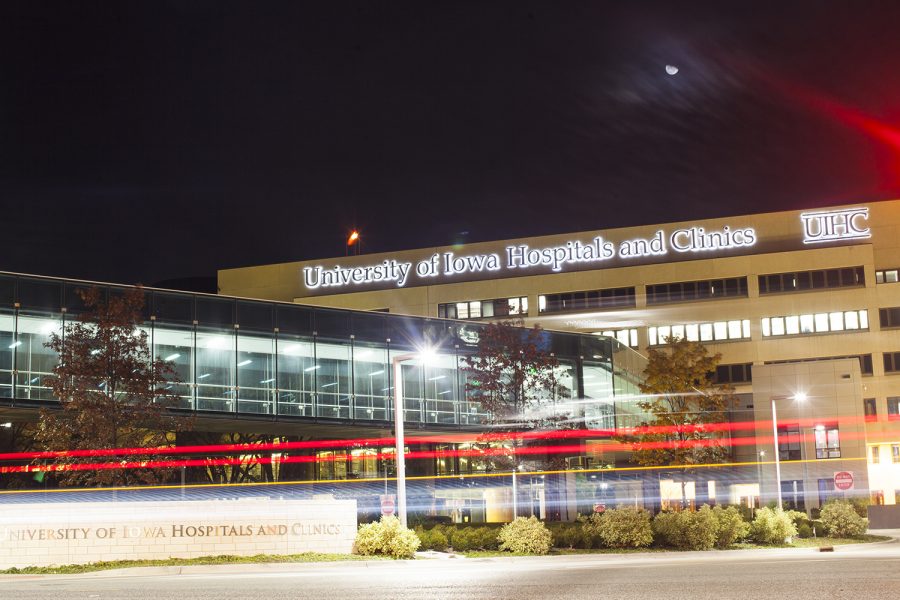UIHC recognized as top treatment center for Parkinson’s Disease
UIHC receives financial support and global recognition for leading efforts against Parkinson’s Disease.
More stories from Sarah Mullen
The University of Iowa Hospitals and Clinics building is seen from the west on Wednesday, Nov. 8, 2017.
The University of Iowa Hospitals and Clinics has earned a special designation for its excellence in addressing the needs of patients with Parkinson’s disease.
The Parkinson’s Foundation, a nonprofit that conducts research and does public advocacy work related to Parkinson’s disease, has established a network of “Centers of Excellence” in the United States and abroad. The UI Hospitals and Clinics recently was designated as one of the Centers of Excellence.
Parkinson’s can affect anyone from famous actors such as Michael J. Fox to someone living down the street. For those afflicted, special centers are available to provide care and treatment.
As life expectancy increases and the United States population ages, nearly 1 million people in the U.S. will live with Parkinson’s by 2020, according to estimates by the Parkinson’s Foundation.
The centers are increasing access to quality care for the growing population of people affected by the disease, said Parkinson’s Foundation CEO John Lehr.
Since UIHC has been designated as a Center of Excellence, it has access to resources and financial support provided by the Parkinson’s Foundation.
“People in Iowa should be proud,” Lehr said. “Of 25 applications received this year, Iowa was one of three chosen, meaning it’s among the very best.”
When hospitals apply to become a Center of Excellence, they are chosen based on excellence in clinical care, research efforts, and public education and outreach, according to the Parkinson’s Foundation.
“[Patient] life depends on the stage of disease, but the goal of care is to address all aspects of disease,” said UI neurology Professor Ergun Uc, the director of the UIHC Movement Disorders Division.
Early stage Parkinson’s is identified by motor-function decline. As it progresses, depression and anxiety, as well as sleep, bowel, urinary, and cognition disorders, which vary from patient to patient, often occur, Uc said.
Later stage Parkinson’s includes dementia and immobility to a point at which patients can no longer live without assistance.
Options for treatment become limited as disease progresses, Uc said, and 10 to 15 years after diagnosis, patients become less responsive to the therapies.
In this stage, patients require collaborative care from additional specialists: psychiatrists, physical therapists, occupational therapists, speech therapists, neuropsychologists, and social workers, he said.
“[At UIHC], we are changing to employ ancillary treatments a lot earlier to improve quality of life and mitigate progression,” he said.
The collaboration among UI researchers and clinicians make it possible to fully study the disease and bring in new therapies for patients, said UI Associate Professor Nandakumar Narayanan, a neuroscience researcher.
Beyond these medical, surgical, and supportive interventions to improve daily living, there is no current “cure” or treatment to permanently prevent the disease’s progression.
Significant increases in understanding Parkinson’s have been made through research, but scientists are limited in finding a cure because each case of Parkinson’s is so different.
Despite barriers, UI researchers are enthusiastic about the future, Narayanan said.
“At Iowa, the distance between the clinic and the laboratory is a 10-minute walk,” he said. “This close interaction between clinicians and researchers isn’t available everywhere.”



